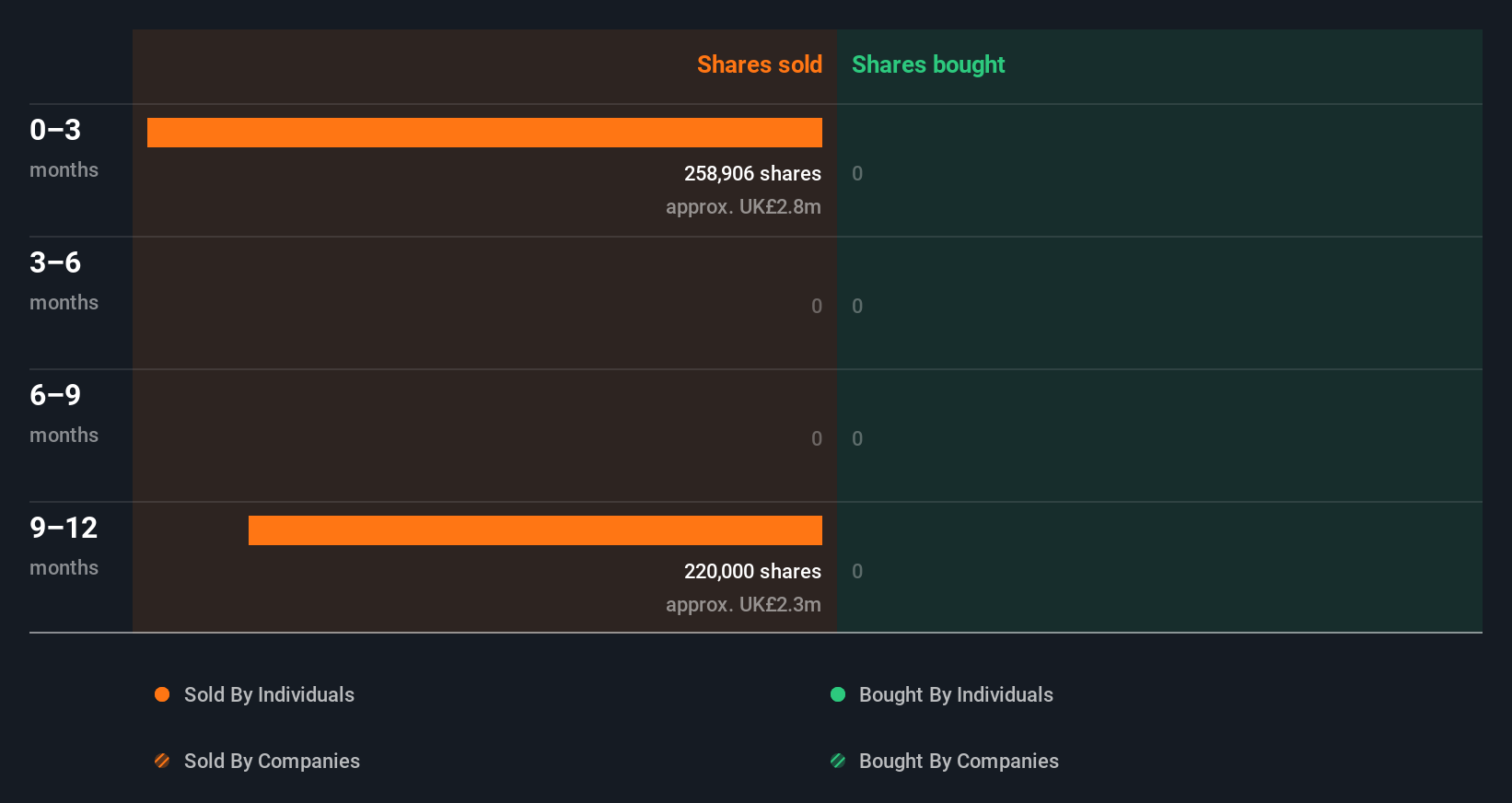- United Kingdom
- /
- Other Utilities
- /
- LSE:NG.
National Grid Insiders Sell UK£5.1m Of Stock, Possibly Signalling Caution
In the last year, many National Grid plc (LON:NG.) insiders sold a substantial stake in the company which may have sparked shareholders' attention. When analyzing insider transactions, it is usually more valuable to know whether insiders are buying versus knowing if they are selling, as the latter sends an ambiguous message. However, when multiple insiders sell stock over a specific duration, shareholders should take notice as that could possibly be a red flag.
While insider transactions are not the most important thing when it comes to long-term investing, we would consider it foolish to ignore insider transactions altogether.
The Last 12 Months Of Insider Transactions At National Grid
In the last twelve months, the biggest single sale by an insider was when the CEO & Executive Director, John Pettigrew, sold UK£2.3m worth of shares at a price of UK£10.39 per share. That means that an insider was selling shares at around the current price of UK£10.39. While we don't usually like to see insider selling, it's more concerning if the sales take place at a lower price. In this case, the big sale took place at around the current price, so it's not too bad (but it's still not a positive).
National Grid insiders didn't buy any shares over the last year. You can see a visual depiction of insider transactions (by companies and individuals) over the last 12 months, below. If you click on the chart, you can see all the individual transactions, including the share price, individual, and the date!
See our latest analysis for National Grid

I will like National Grid better if I see some big insider buys. While we wait, check out this free list of undervalued and small cap stocks with considerable, recent, insider buying.
Insiders At National Grid Have Sold Stock Recently
Over the last three months, we've seen significant insider selling at National Grid. In total, insiders dumped UK£2.8m worth of shares in that time, and we didn't record any purchases whatsoever. This may suggest that some insiders think that the shares are not cheap.
Insider Ownership
For a common shareholder, it is worth checking how many shares are held by company insiders. A high insider ownership often makes company leadership more mindful of shareholder interests. Insiders own 0.06% of National Grid shares, worth about UK£32m. This level of insider ownership is good but just short of being particularly stand-out. It certainly does suggest a reasonable degree of alignment.
So What Do The National Grid Insider Transactions Indicate?
Insiders sold National Grid shares recently, but they didn't buy any. Looking to the last twelve months, our data doesn't show any insider buying. But since National Grid is profitable and growing, we're not too worried by this. Insiders own shares, but we're still pretty cautious, given the history of sales. We're in no rush to buy! In addition to knowing about insider transactions going on, it's beneficial to identify the risks facing National Grid. To help with this, we've discovered 3 warning signs (1 makes us a bit uncomfortable!) that you ought to be aware of before buying any shares in National Grid.
But note: National Grid may not be the best stock to buy. So take a peek at this free list of interesting companies with high ROE and low debt.
For the purposes of this article, insiders are those individuals who report their transactions to the relevant regulatory body. We currently account for open market transactions and private dispositions of direct interests only, but not derivative transactions or indirect interests.
Valuation is complex, but we're here to simplify it.
Discover if National Grid might be undervalued or overvalued with our detailed analysis, featuring fair value estimates, potential risks, dividends, insider trades, and its financial condition.
Access Free AnalysisHave feedback on this article? Concerned about the content? Get in touch with us directly. Alternatively, email editorial-team (at) simplywallst.com.
This article by Simply Wall St is general in nature. We provide commentary based on historical data and analyst forecasts only using an unbiased methodology and our articles are not intended to be financial advice. It does not constitute a recommendation to buy or sell any stock, and does not take account of your objectives, or your financial situation. We aim to bring you long-term focused analysis driven by fundamental data. Note that our analysis may not factor in the latest price-sensitive company announcements or qualitative material. Simply Wall St has no position in any stocks mentioned.
About LSE:NG.
National Grid
Engages in the transmission and distribution of electricity and gas.
Solid track record with mediocre balance sheet.
Similar Companies
Market Insights
Community Narratives



